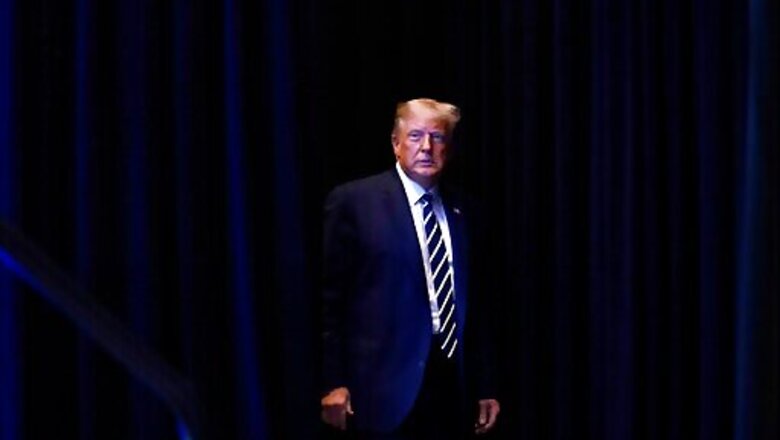
views
The future of the Supreme Court is on the line, though it would be hard to tell from the Democratic National Convention that just concluded.
There was a fleeting glimpse of a younger Ruth Bader Ginsburg, a brief reference to the court by Senate Democratic leader Chuck Schumer of New York and a mention of it by Ayesha Curry, in a segment with NBA star Stephen Curry and their two daughters.
Neither Democratic presidential nominee Joe Biden nor vice presidential running mate Kamala Harris said a word about the high court in their acceptance speeches.
By contrast, President Donald Trump and other Republican candidates rarely miss a chance to talk up Trump’s more than 200 federal court appointments, including Supreme Court justices Neil Gorsuch and Brett Kavanaugh, with the prospect of more seats to fill in a second term.
The most important thing a president can do is the appointment of federal judges and Supreme Court justices,” Trump said at a recent campaign stop in Yuma, Arizona.
That’s a refrain likely to be repeated at the Republican National Convention that begins on Monday and when Trump gives his acceptance speech later in the week.
The Democratic silence is all the more surprising because liberal groups are trying to motivate progressive voters by highlighting the GOP’s success in restocking the federal bench with younger judges who might serve for decades.
One ad from the Supreme Court Voter project, a coalition of Democratic and liberal groups, features Senate Majority Leader Mitch McConnell telling a crowd, Were changing the federal courts forever.
It was a major misstep on the part of the Democrats to remain silent about the courts, said Nan Aron, president of the judiciary-focused Alliance for Justice. Democrats mistakenly believe that the right-wing base of the Republican Party cares more passionately about the courts than progressives do.
Trump is explicitly making a similar point. When it comes to the Second Amendment, when it comes to life, when it comes to a lot of things you people live for, if you don’t have the Supreme Court and you don’t have the courts on your side, you can forget it, Trump said at the Arizona rally.
Four years ago, Republicans successfully made the Supreme Court an election issue when they kept a high court seat open and candidate Trump offered voters a list of potential nominees to fill it.
A fifth of voters nationwide said Supreme Court appointments were the most important factor in determining their presidential vote, and nearly 6 in 10 of them backed Trump, according to 2016 exit polls.
With the 87-year-old Ginsburg’s health faltering and Justice Stephen Breyer just having celebrated his 82nd birthday, both sides recognize the next president could have more than one Supreme Court seat to fill. Conservative Justices Clarence Thomas and Samuel Alito also are in their 70s.
The courts and the future of the country could not be more on the ballot this year, Elizabeth Wydra, president of the liberal Constitutional Accountability Center, said in a recent online forum.
The court currently has five conservative Republican justices, although Chief Justice John Roberts sided with the liberals in several important cases last term that provoked criticism from Vice President Mike Pence and others.
If Trump gets to replace one or both of the two aging liberals, he could solidify a conservative majority that would not depend on Roberts’ vote.
The convention aside, Democrats have taken some steps to elevate the courts as an issue.
Biden has pledged to put the first Black woman on the court and has suggested vetting is already underway to consider candidates if hes elected.
The Democratic platform endorses amorphous structural court reforms to increase transparency and accountability and also calls for increasing the number of lower court judges to handle increased workloads around the country.
But there is nothing on two far-reaching proposals to expand the Supreme Court or adopt term limits for justices, although some progressive congressional candidates who back court expansion won their primaries.
Disclaimer: This post has been auto-published from an agency feed without any modifications to the text and has not been reviewed by an editor
















Comments
0 comment